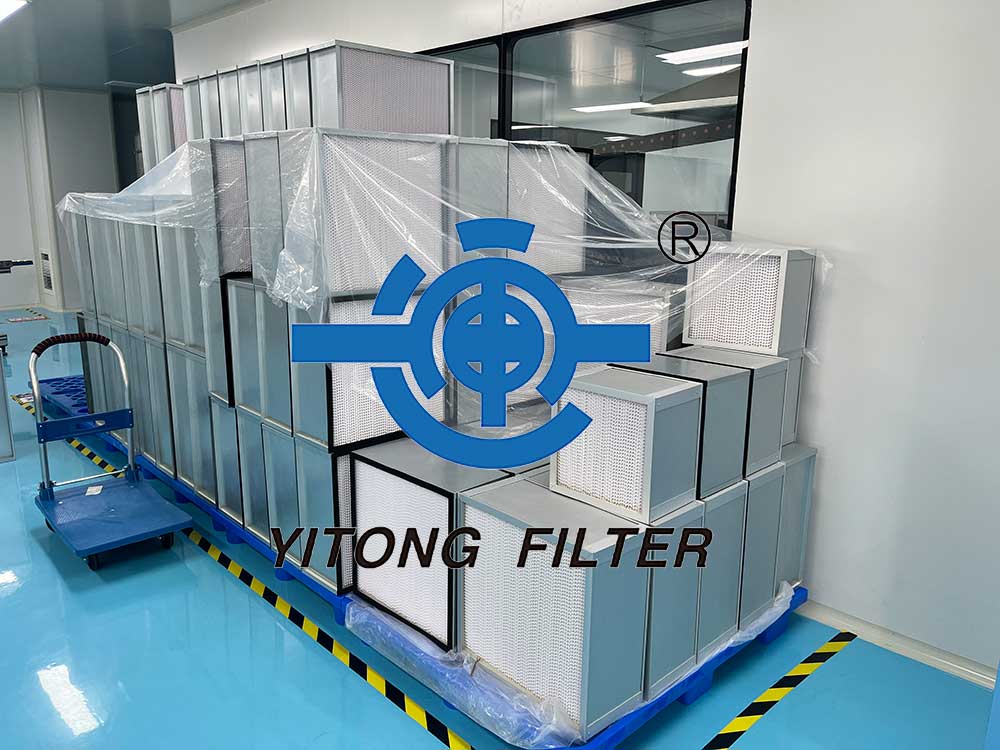 December 04, 2024
December 04, 2024
HEPA filters have become essential for improving indoor air quality in homes, offices, and industrial settings. If you're searching for HEPA filters near me, this guide will provide everything you need to know, from understanding HEPA technology to finding the best local suppliers.

HEPA stands for High-Efficiency Particulate Air. These filters are designed to capture at least 99.97% of airborne particles as small as 0.3 microns, including dust, pollen, mold spores, pet dander, and even some bacteria and viruses.
HEPA filters are commonly used in:
- Air Purifiers
- HVAC Systems
- Vacuum Cleaners
- Cleanrooms and Laboratories
1. Improved Air Quality:
HEPA filters remove harmful pollutants from the air, which is especially beneficial for people with allergies or respiratory conditions.
2. Reduced Allergens:
By trapping dust mites, pollen, and pet dander, HEPA filters significantly reduce common allergens in your environment.
3. Protection Against Airborne Illnesses:
HEPA filters can capture bacteria and some viruses, providing an extra layer of protection during flu seasons or pandemics.
4. Odor Reduction:
While HEPA filters don’t remove gases, they often work in conjunction with activated carbon filters to reduce odors from smoke, pets, and cooking.
When searching for HEPA filters near you, consider the following factors:
1. Type of HEPA Filter:
- True HEPA: Meets the highest standards, capturing 99.97% of particles down to 0.3 microns.
- HEPA-Type or HEPA-Like: Less efficient and may not meet the 99.97% standard. Always check the label!
2. Size and Compatibility:
Ensure the filter fits your air purifier, HVAC system, or vacuum cleaner. Check your device’s specifications for compatibility.
3. Filter Efficiency Rating:
Look for MERV ratings if applicable. A higher MERV rating indicates better filtration.
4. Replacement Frequency:
Check how often the filter needs to be replaced. Some last a few months, while others may last a year.
5. Local Availability:
Ensure the supplier offers the specific type of HEPA filter you need. Some local stores specialize in residential filters, while others cater to industrial needs.
1. Home Improvement Stores:
Major chains like Home Depot or Lowe's usually stock a variety of HEPA filters for different applications.
2. Specialty Air Quality Stores:
These stores often carry higher-grade HEPA filters and can provide expert advice based on your specific needs.
3. HVAC Service Providers:
Local HVAC companies often sell and install HEPA filters for home or office systems. They can recommend the best option for your setup.
4. Online Retailers with Local Pickup:
Many online platforms offer buy online, pick up in-store options, making it easy to get your HEPA filter quickly.
5. Medical Supply Stores:
For specialized HEPA filters used in healthcare or cleanroom environments, check with local medical suppliers.
1. Follow Installation Guidelines:
Improper installation can reduce the filter's effectiveness. Always follow the manufacturer’s instructions.
2. Regular Maintenance:
- Check the filter monthly for visible dirt or damage.
- Replace as recommended by the manufacturer, usually every 6-12 months depending on usage.
3. Seal Any Gaps:
Ensure a tight seal around the filter to prevent unfiltered air from bypassing it.
4. Monitor Air Quality:
Consider using an air quality monitor to track improvements and determine when the filter needs replacement.
Finding the right HEPA filter near you is crucial for maintaining clean and healthy indoor air. Whether you need a filter for your home, office, or industrial space, understanding the basics of HEPA technology and knowing where to look locally will help you make an informed decision.
Investing in a high-quality HEPA filter ensures you breathe cleaner air and enjoy a healthier environment. Start your search today and experience the benefits of superior air filtration!
We are a trusted manufacturer of HEPA filters with over 20 years of experience in the industry. Our high-quality filters are designed to meet stringent air purification standards and are widely used across various industries, including healthcare, electronics, pharmaceuticals, and cleanrooms.